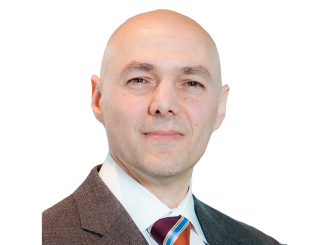May 21, 2010
By Ezra E. W. Cohen, MD, FRCPC
University of Chicago
The Young Investigator Awards (YIA) and Career Development Awards (CDA) offered as part of Conquer Cancer Foundation Grants Program are awarded to fellows and junior faculty at a time when an academic career is most fragile. There are multiple pressures on fellows as they transition to their first faculty appointment, and fellows must balance research, personal, and economic needs. It is a time when professional skills must be refined and initial funding sources need to be secured while life’s other demands are often cresting. This is why so many faculty decide to leave academic positions within the first few years of graduating fellowship.
I was fortunate to be awarded a YIA during my transition from fellowship to faculty, and I received a CDA as a junior faculty member at the University of Chicago. Beyond the obvious assistance in providing funding to test research hypotheses, these awards furnished one other critical element in any career: confidence.
I vividly remember that while interviewing for a faculty position at the University of Chicago, one interviewer realistically pointed out the financial obstacles ahead of me. I had chosen to specialize in head and neck cancer, a disease that tends to garner less support than other disease types, and because I am not a U.S. citizen, certain funding sources were not available to me.
However, those potential barriers were offset by opportunities in head and neck cancer that galvanized my interests. The disease lends itself wonderfully to research because tissue is available for sampling, and early in my career, medical oncology was beginning to play a greater role in the management of this disease. Moreover, the University of Chicago already had an incredibly capable team with a strong tradition of researching advances in head and neck cancer. Along with excellent mentorship and the promise of protected time, the necessary components of a successful career were in place.
As a hematology/oncology fellow, I knew I wanted to pursue translational research but had little experience in clinical trials and even less in laboratory techniques. I also knew that bridging the worlds of basic and clinical science would not be a simple undertaking. As a developing academician, one always wonders if they are pursuing ideas that make sense and will bear fruit. Of course, this is an area where strong mentorship with a senior faculty member is invaluable; however, external validation is also intermittently necessary.
The YIA was my first peer-reviewed award, and it helped initiate laboratory research that has evolved tremendously and that we are still engaged in today. More importantly, it provided evidence that the work we were doing had merit. Every researcher at some point in their career (and hopefully at several points, not just once) believes they are either onto something groundbreaking or completely crazy. It is the ability to think beyond the confines of convention and dogma that leads to innovation, and these thoughts are often inevitable. At the same time, however, one must gauge reality and the true value of one’s research in the larger clinical context; peer-reviewed funding is, in a sense, such an instrument of validation.
Confidence is self-perpetuating. As I began to believe in the directions of our research and the sense that this was leading somewhere significant, it was easy to convince my institution that financial support was well founded and necessary. The CDA was awarded at another critical juncture in my career path. This was my first multi-year grant, which allowed longer-term goals to develop and which led to provision of space for an independent laboratory. Furthermore, initial grants eventually generate more funding as hypotheses develop and new directions take shape.
Today, as the Fellowship Program Director at the University of Chicago, I have the opportunity to oversee the professional development program and to personally serve as a mentor to some fellows. As a program, we encourage our fellows to apply for the YIA because it helps support their research. More importantly, however, the process becomes an integral part of their training, and if the application is reviewed favorably, it can inspire the same self-confidence that I now recognize as a significant benefit of my success.

